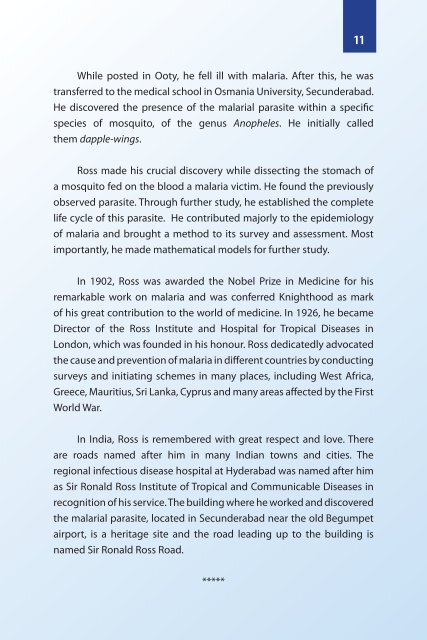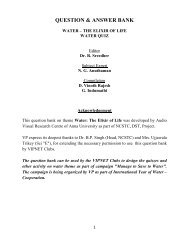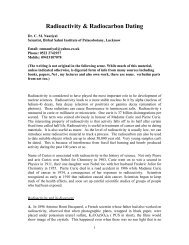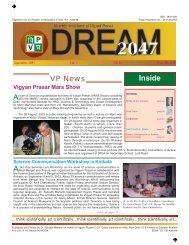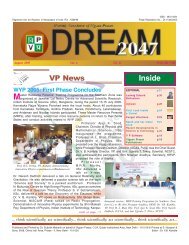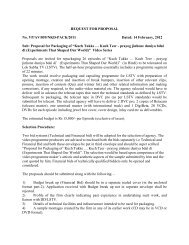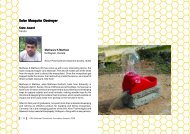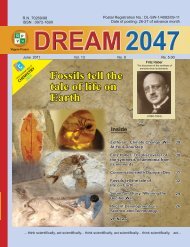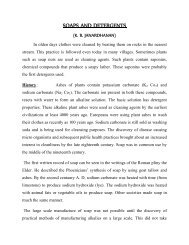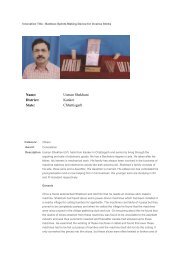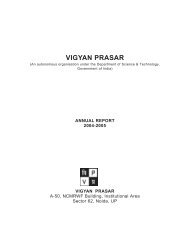Vidyarthi Vigyan Manthan: A national programme to ... - Vigyan Prasar
Vidyarthi Vigyan Manthan: A national programme to ... - Vigyan Prasar
Vidyarthi Vigyan Manthan: A national programme to ... - Vigyan Prasar
You also want an ePaper? Increase the reach of your titles
YUMPU automatically turns print PDFs into web optimized ePapers that Google loves.
11<br />
While posted in Ooty, he fell ill with malaria. After this, he was<br />
transferred <strong>to</strong> the medical school in Osmania University, Secunderabad.<br />
He discovered the presence of the malarial parasite within a specific<br />
species of mosqui<strong>to</strong>, of the genus Anopheles. He initially called<br />
them dapple-wings.<br />
Ross made his crucial discovery while dissecting the s<strong>to</strong>mach of<br />
a mosqui<strong>to</strong> fed on the blood a malaria victim. He found the previously<br />
observed parasite. Through further study, he established the complete<br />
life cycle of this parasite. He contributed majorly <strong>to</strong> the epidemiology<br />
of malaria and brought a method <strong>to</strong> its survey and assessment. Most<br />
importantly, he made mathematical models for further study.<br />
In 1902, Ross was awarded the Nobel Prize in Medicine for his<br />
remarkable work on malaria and was conferred Knighthood as mark<br />
of his great contribution <strong>to</strong> the world of medicine. In 1926, he became<br />
Direc<strong>to</strong>r of the Ross Institute and Hospital for Tropical Diseases in<br />
London, which was founded in his honour. Ross dedicatedly advocated<br />
the cause and prevention of malaria in different countries by conducting<br />
surveys and initiating schemes in many places, including West Africa,<br />
Greece, Mauritius, Sri Lanka, Cyprus and many areas affected by the First<br />
World War.<br />
In India, Ross is remembered with great respect and love. There<br />
are roads named after him in many Indian <strong>to</strong>wns and cities. The<br />
regional infectious disease hospital at Hyderabad was named after him<br />
as Sir Ronald Ross Institute of Tropical and Communicable Diseases in<br />
recognition of his service. The building where he worked and discovered<br />
the malarial parasite, located in Secunderabad near the old Begumpet<br />
airport, is a heritage site and the road leading up <strong>to</strong> the building is<br />
named Sir Ronald Ross Road.<br />
*****


